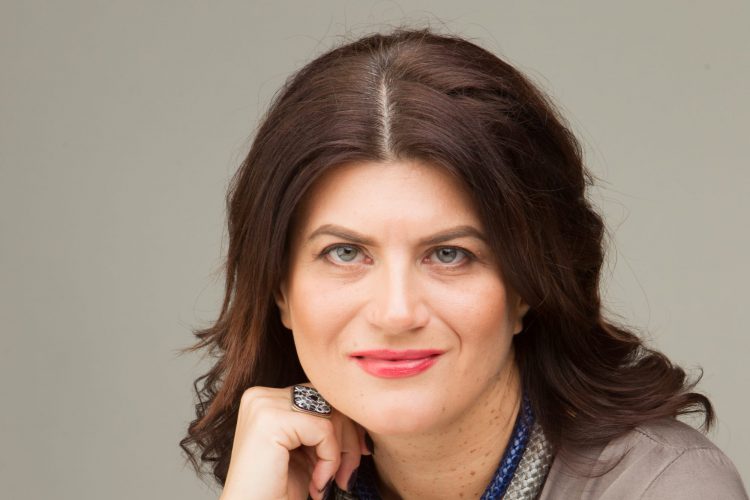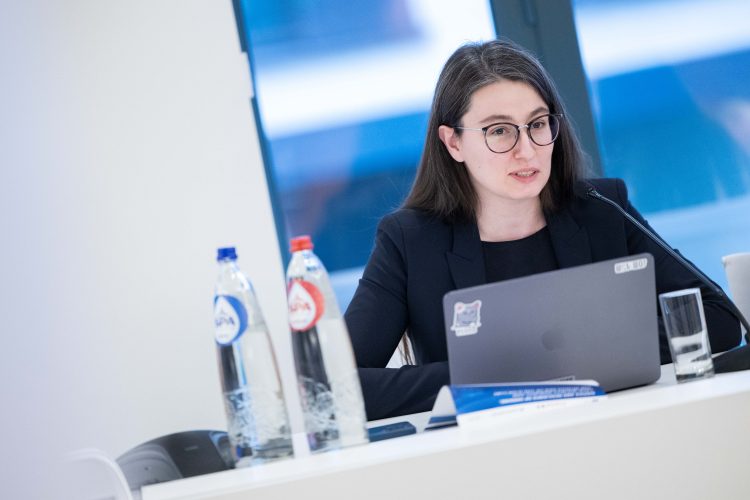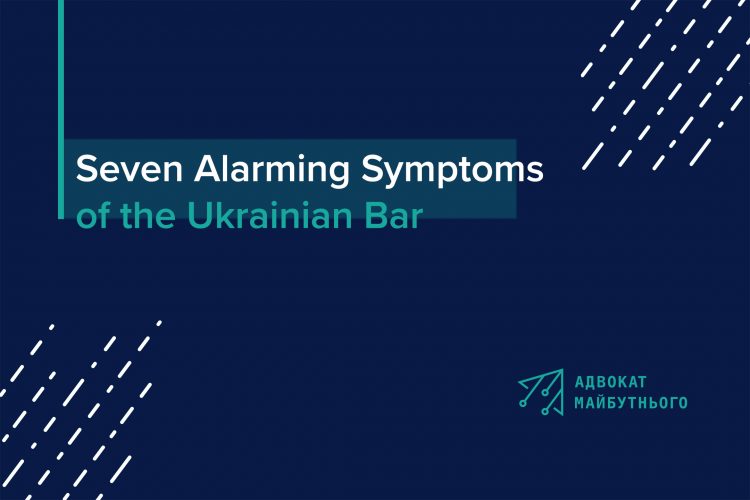


Do Not Socialize Evil
 LARYSA DENYSENKO
LARYSA DENYSENKO
Trainer of “Tomorrow’s Lawyer” Program, human rights activist, lawyer, media person, writer
It is difficult to write something original or new about corruption. It has long turned into a board game, with rules familiar even to a child. It does not matter who sets a top spinning first – the game starts no matter what. And it does not matter how it ends, because it’s very launch, the habit and simplicity of the rules testify to the sick person, society, community, state, business, institution…
In 1999, acting as the Head of Transparency International – Ukraine, together with sociologists and teachers, I developed and conducted a survey among five Ukrainian school graduates regarding the perception of corruption. 90% of schoolchildren considered corruption to be a negative phenomenon, and everyone knew well what it was. At the same time, to the question: “Do you justify corruption? Will you consider it an effective tool if it helps you to enter the university?” Almost the same 90% (or more precisely, 85%) answered affirmatively.
We have two basic traditions. In principle, we know what is good and what is evil. We know what exactly we should say and how, and we can condemn the negative phenomena. We can even write about this, act on television, compose political and election programs, teach children at open lessons, humbly shout out from the stands or from the squares. But at the same time, we know how to live and how to solve problems. In a country where the “only window” opens through a bureaucratic pocket, it is hard to be righteous. Even a maternity ward already has turned to a gaming table with the rules familiar to us: if you want to give birth in comfort – pay a doctor first and plus, arrange a deal with someone else. Throw a hryvnia – secure yourself. Corruption is our KASKO. In cash we trust.
Corruption, unlike the justice system, is functional. It works, is fast-paced and requires a minimum effort from an individual. It functions as an alternative justice system, actually lowering the legal education as such. It is difficult to withstand this phenomenon, as with any scheme verified by time and people, although illegal but quite traditional.
And besides, corruption is also a powerful social lift. Many successful attorneys came out of the cohort of “solvers”, “carriers”, “postmen”, “dealers”. All of them are quite legitimate, they were not brought to criminal or disciplinary responsibility – they simply took advantage of the opportunities and people.
Taking into account the results of sociological researches, the main risk of corruption in cases where people interact with judicial and law enforcement agencies, is the inclination to corrupt patterns of behavior:
- The orientation towards the use of corruption models of behavior by the citizens;
- The presence of corruption claims from authorized officials,
- The activity of intermediaries involved in solving certain problems and focusing on corruption behavior.
At the same time advocates often act as intermediaries. That is, those who would be able to become an unobstructed barrier for the money on their way to untruthful judges instead often push the button themselves and raise it. Everything has its price, everything has its advantages.
Political career, own business, wealth, interview … All these things are material and spectacular, all this can literally be felt, it can be envied. You want to be equal: to our opinion, a cool lawyer is a brilliant and easy person; obviously this could not be a tired man burdened by extra working hours, who stinks in the office from early morning until late at night.
But how many of them are serious experts, opinion leaders, mentors, experts and legends in the positive meaning? How many of these colleagues could you recommend to your loved ones? How many such people are taken and brought to the end of strategic affairs, important both for the fate of one person and for the human rights system in general?
You can compete honestly, fail to achieve a positive result, and at the end be devalued by the client and community members. But this in no way can level you out for you, otherwise you deny honesty, ethics and professionalism, as if it is not essential and totally worthless. What criteria will you use then? Why are we in the profession then? In the end, why do we need it at all? Legal aid by illegal methods?
If some forged documents would leave us with a stolen apartment, we would be indignant; we would feel deplorable, humbled and frightened. The same reaction should be caused by a purchased and unlawful decision.
Once upon a time, the unbelievable Gregory Ginzburg (I appreciate every uncommon moment of our communication) told me: “The worst thing that can happen and cannot be tolerated – that lawyers turned into attributes of justice.”
A legal, legitimate decision is a strong safeguard for a judge from a political or administrative pressure. For lawyers, ethics, respect for the client, respect for human rights, for themselves and for the profession must become a safeguard from corruption. In my opinion, the difference between the entrepreneurial activity in the field of legal practice and advocacy / defense is that advocating by its content, essence and principles denies corruption. Because this profession is not about money, not about financial transactions – this profession, first of all, deals with legal matters and justice.
Advocacy is an intellectual challenge and enrichment by development, competition of legal positions, skills and abilities. Advocacy is creativity! Corruption has no room for creativity. In fact, it turns lawyers and other participants of “alternative justice” into robots at the conveyor belt.
A strong, well-argued, brilliantly stated and proclaimed legal position will always block a corrupt proposition. Maybe not in the court of first instance, perhaps not even during the appeal, but in the international judicial institution – for sure. The existence, sounding of such position reveals the insignificance and unlawfulness of a court decision / sentence issued as a result of a malicious scheme.
We shouldn’t conceal the evil practices; we must reveal the negative consequences of solving cases in a wrong way. After all, if the case is decided for money, there is no place for justice and it will never be restored. So an unfair decision is worthless.
However, here I am talking more about the external aspect – corruption in the justice system. There is also an internal aspect – corruption within the advocacy community: the pressure and intimidation of courageous and progressive lawyers; mess and “carousel” at the general meetings within self-government; opaque decision making process; administrative and managerial intrigues; unprincipled criteria for access to the profession; lack of democratic access of each lawyer to self-government; muddy disciplinary proceedings, etc.
It is wrong to socially legitimize those who have sticky fingers. From the point of criminal liability, a lawyer-“solver” can escape from justice, as well as a lawyer-“manager” who implements relevant schemes within an institution. Instead, from a social point of view, they must feel rejection, loss of reputation and respect.
Such people should not speak at conferences or rule the ball in lawyer’s self-government. They should not feel their social magnitude, they cannot be mentors, they should not become judges; they must not represent the legal community in any government, media, or non-governmental organizations. Such people must become pariahs even in professional communities. Their unfit behaviour should be tabooed. Their professional achievements, even honestly earned, should be reviewed and devalued. Their names should not sound as examples of esteemed representatives of the profession in the classrooms of their universities. Their charitable contributions should not be accepted.
It is very difficult to overcome corruption, but you can resist socialization of evil right now, even as we speak.
Published by Jurydychna Gazeta (Legal Newspaper) Weekly.


